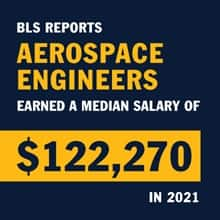
An engineer quiz can help you learn new things. Emerson Utgaard developed one quiz for RIME, which stands for Represent in Math and Engineering. Engineers are responsible for creating the future by inventing, discovering, and exploring. There are many specialties within engineering. There are many career options.
Are you an engineer?
An engineer is someone who does engineering. They create and analyze complex systems and structures. They design gadgets, machines, and materials. They are responsible for making these structures and systems perform in a specific way to meet functional requirements. They are an integral part our society and a valuable asset businesses and organizations.
Engineers are able to solve many of the world’s problems through new solutions. Engineers can create everything to improve the world. Engineers solve problems and help save lives.
Which engineering specialisation suits you best?
Engineering is a wide-ranging field with several sub-specialisations. All involve problem solving and technical design. These innovative careers can make a big difference in the lives of people and attract many students to this field. Moreover, the engineering field offers recession-proof work. This makes it the fifth most preferred major in the United States. Before you can decide on the engineering specialisation that is right for your needs, there are many questions.

First, determine your interests. Geotechnical engineering might be for you if you like digging in the dirt. Alternately, you could choose structural engineering if your passion is building skyscrapers.
Are you a math-whiz?
Some people don't have a natural love for math. However, they can still use their skills in other areas such as software engineering. Engineers must be able understand how things work before they can create better products. The math skills they need to succeed in this field include complex analysis, boolean logical, and statistics.
Engineering schools are looking for math-savvy students. Mathematics is a key skill for engineers. Therefore, applicants need to take advanced math classes at high school such as algebra and calculus. These courses are especially important and you should earn an A or better. While most applicants will choose to take pre-calculus, algebra II and geometry, the majority of applicants will also be required to earn an A or B in calculus. AP Calculus is an excellent choice for engineering students who want to stand out.
Are you a problem-solver?
Engineers are required to solve problems. Good problem-solvers will understand the human condition, and then come up with solutions. Engineers should be proficient at math. Although most engineers don't use mathematics every day, it is an essential skill. Although it is not necessary to be an Engineer to be a Problem-Seller, it might just be that you are interested in solving problems.
It is best to practice problem solving. You will need to be able ask the right questions. Also, you should practice analyzing and diagnosing the problem. This skill will help you find solutions faster and more efficiently. If you don’t know the answer, it is important to ask for help.

Are you an engineer in the environment?
If you're considering a career in environmental engineering, you'll need to consider your education and the type of work you hope to do. Environmental engineers conduct environmental investigations, prepare plans, get permits, and provide administrative support. A budget manager and budget forecaster may be part of their work. It is a rewarding career that can require more than 40 hours per week. However, it is possible to have a work-life balance. An environmental engineer may be involved in regulatory work, hazardous materials management, and control.
Engineers in environmental engineering use their scientific knowledge and expertise to create systems that control pollution and protect our environment. They can work in the construction sector, in offices, or out in the field. Some environmental engineers work as regional planning specialists, where they conduct field research. These professionals could also assist in the development of new technologies that reduce the environmental impact.
FAQ
Do I need a degree to become an engineer?
To become an engineer, you don't need to have a bachelors degree. Many employers prefer applicants with degrees. Online classes are also available if you don’t have a degree.
What are civil engineers doing?
Civil engineering involves the design and construction large-scale structures like roads, bridges and buildings. It includes all aspects of structural engineering including foundations, geotechnics and hydraulics as well as soils, safety analysis, traffic management, environmental impact assessment, and safety analysis. Civil engineers ensure that your project is both cost-effective, and environmentally responsible. They must make sure that the structure lasts.
They may also be involved in the planning and implementation of public works programs. They may oversee, for example, the design and construction of roads, bridges or tunnels.
What does a Chemical Engineer do for a living?
Chemical engineers use math, science, engineering, technology, and business skills to develop chemical processes, products, equipment, and technologies.
Chemical engineers can choose to specialize in areas like petroleum refining or pharmaceuticals, food processing, agricultural, textiles and paper, mining, metalurgisty, and power generation.
They collaborate closely with scientists and researchers to solve technical problems.
What type of engineer is paid the most?
Software engineers would be the correct answer. They are the ones who code for computers. They are also able to choose the kind of project they want. Software engineers can work in any industry, but they usually choose to work at tech companies such as Google or Microsoft.
Statistics
- Job growth outlook through 2030: 9% (snhu.edu)
- 8% Civil engineers solve infrastructure problems. (snhu.edu)
External Links
How To
How to use an Engineering Technical Pen
A good engineering pen should have the following:
-
An ergonomic grip
-
A comfortable writing surface (a rubberized grip would be best)
-
Easy access to ink cartridges
-
Allowable space to correct any mistakes
-
Quality nibs
-
For long periods of time, ergonomics for long-term use
-
Good visibility of the ink level
-
A low-weight diet
-
Good price/value ratio
These tools require that you learn how to properly use them.